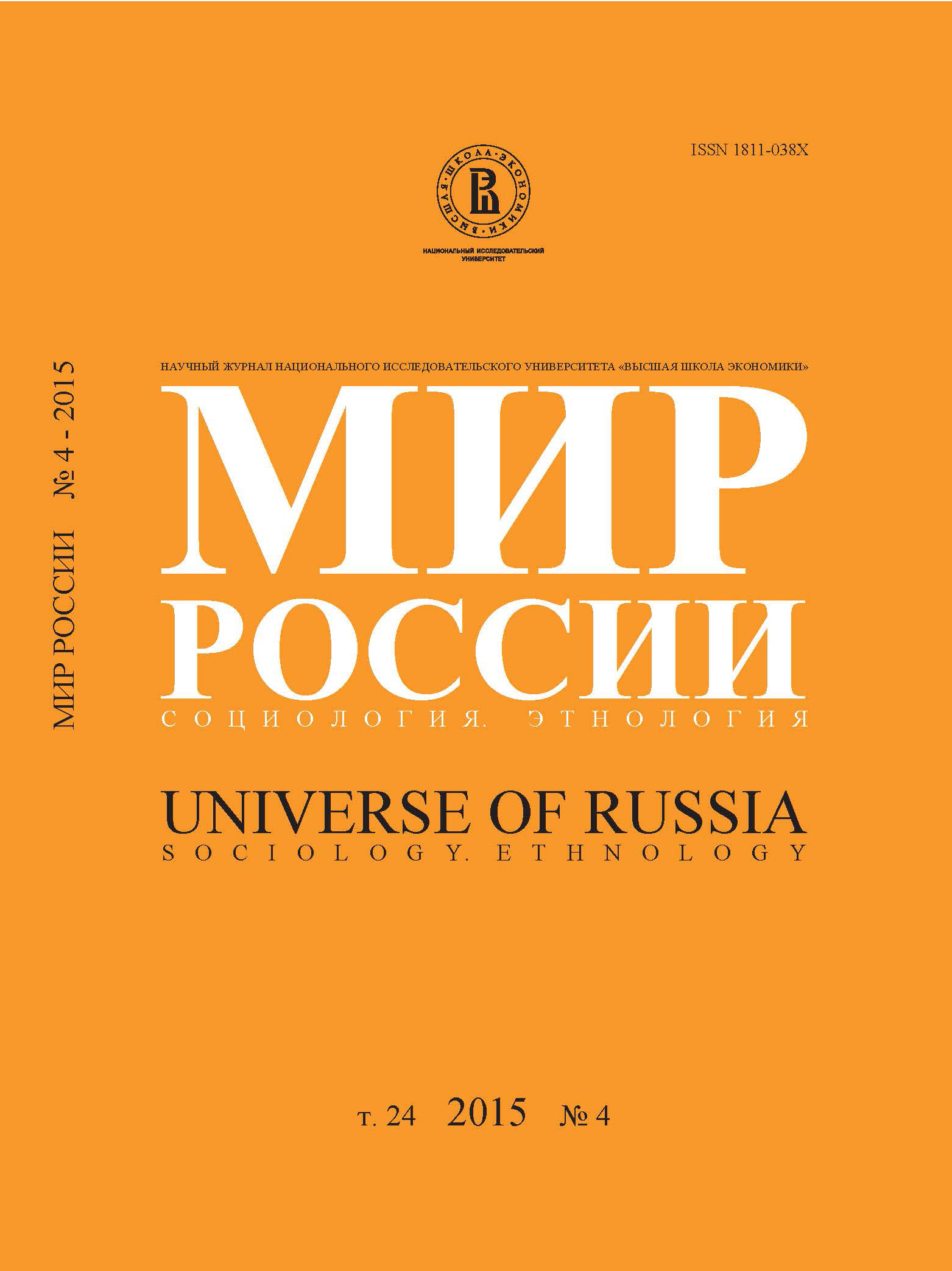Reproductive Age: 30 Years Old in Preferences and Biographies
Abstract
Anna Ipatova – Candidate of Cultural Sciences, Senior Researcher, Laboratory of Federative Research Methodology, Institute for Social Analysis and Prediction, The Russian Presidential Academy of National Economy and Public Administration. Address: 11, Prechistenskaya quay, Moscow, 119034, Russian Federation. E-mail: ipatova_anna@mail.ru
Alla Tyndik – Candidate of Economics Sciences, Leading Researcher, Laboratory of Studies in Demography, Migration and Labor Market, Institute for Social Analysis and Prediction, The Russian Presidential Academy of National Economy and Public Administration. Address: 11, Prechistenskaya quay, Moscow, 119034, Russian Federation. E-mail: tyndik-ao@rane.ru
This article addresses the phenomenon of late motherhood. A steady rise in women’s age at first birth has been a key demographic tendency in Russia over the last 20 years: it has increased by almost 3 years and reached 25.2 years in 2013. Investigating to what extent this process has been driven by women’s preferences and to what extent by circumstances is the key objective of the article.
The study of women’s preferences regarding the age of childbearing, motivation for postponement and partnership history was carried out via semi-structured narrative interviews. The respondents were childless women aged between 27 and 55, and women who gave birth to their first child after 30. Therefore the sample consists of non-typical Russian women with regard to the process of family formation.
The authors find that education and career play an important role for young women, which they often articulate. Initially, in almost every interview the wish to postpone motherhood was justified using socially approved arguments such as orientation towards success and achievement, the need to get an education, to find a good job, to see the world. However, the weight of these socially approved arguments suggests that women also downplay the role of a successful marriage in their statements regarding late motherhood. Most demographic studies do not pay much attention to such common sense factors as the lack of a suitable partner: as the biographical interviews unfolded, this factor came into play and became more obvious in explaining women’s fertility intentions. This finding is particularly important in the context of the age of 30. Simply put, the birth of a child (or children) before this age is regarded as a consequence of certain personal circumstances; after this age it is more often seen as the result of a woman’s efforts. These efforts could be the purposeful search for a suitable father or work towards greater economic independence. The authors conclude that the age of 30 has become the time-point by which most women are socially expected to give birth.






